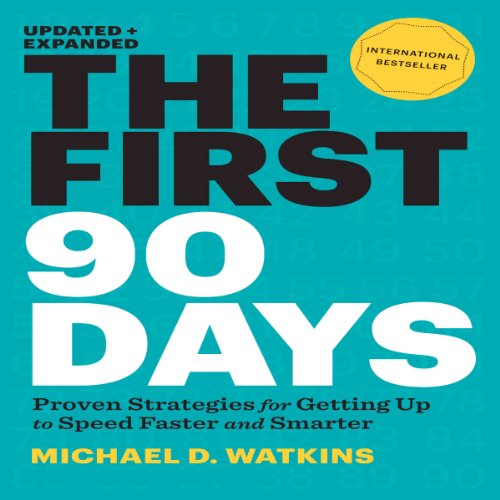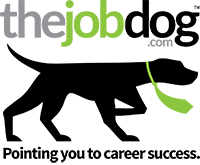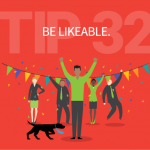Career Tip 33: Win the Day – The Day of the Interview
Step Out of the Car with Confidence
A recent article advised, “During a job interview, you’re being evaluated by everyone from the receptionist to the executive who may be walking through. Your interview really begins when you step into the office.” Here is The Job Dog’s viewpoint: “The show really begins as soon as you step out of your car. You never know who may be looking out a window as you walk in and what impressions they may be forming.”
Walk with Energy
Project confidence by keeping your head up and shoulders back.
Lighten Up! Smile
A smile that says you are comfortable can also convey you are an easygoing person who readily likes others. Be mindful of your facial expressions, gestures, and other nonverbal cues. Make sure you look interested and friendly.
Add Volume to Your Voice
Professional speakers and telemarketers know that a bit more volume (not excessive) is universally interpreted as energy. Make sure people hear enthusiasm and energy in your voice.
Maintain Eye Contact
Eye contact demonstrates you are confidently engaged in the conversation. If you are in a group interview situation, move your eye contact around the room while often returning to the person who asked you the question.
Monitor Your Body Language
Skilled interviewers are just as inclined to watch as they are to listen.
Positive body language includes
- facing the speaker,
- maintaining eye contact,
- keeping your hands relatively still,
- changing facial expressions,
- smiling, and
- varying your posture from time to time.
Negative body language includes
- fidgeting,
- touching your face or hair,
- looking at the clock or your watch,
- leaning back,
- folding or closing your arms,
- avoiding eye contact,
- glancing at your cell phone (it should be out of sight)
- sitting awkwardly or uncomfortably, and
- looking down at the table too often while speaking.
Also Be Sure To
- Turn off your cell phone. Yeah, I know you know, yet, too many people don’t or forget.
- Go into the restroom when you arrive and step in front of the mirror to ensure everything looks as it should, including that your clothing is straightened, buttoned, and zipped.
- Shake hands with everyone. If a panel is interviewing you, work the table evenly. A highly experienced and successful waiter we know stresses the importance of equally recognizing everyone.
- Don’t sit until invited to do so. Let the interviewer suggest a seat.
- Draw a seating chart if there is more than one person in the room. It is much less embarrassing to ask for someone‘s name to be repeated if you ask for it again early in the interview.
- Know the available time. Give everyone in the room a fair share of that time by pacing your answers accordingly.
- Take notes. Yes, take notes. If you were in an important meeting at work and did not take notes, The Job Dog would not invite you back to the next meeting.
- Use short sentences. The most effective interview response is a short sentence or two. Pause, and let the interviewer signal whether he/she wants to hear more or is ready to move on to the next question.
- Reinforce others. Make connections when you can: “Josie, the answer to that ties into what Jack asked about…”
- At the end of the interview, judge whether it is appropriate to collect business cards or to give out your card.
What Not to Ask In an Interview
Don’t ask a question your interviewer may not be able to answer. This is especially true in a first interview or in a panel interview when others are observing the discussion. You do not ever want to embarrass or make your interviewer uncomfortable. Consider saving your hardball questions for an appropriate person who is highly likely to know the answer or until after you have the job offer.
How to Handle an Illegal Question
Questions about age, marital status, number of children, ethnic background, race, etc. are illegal, yet we find, even today, are asked all too often. If you are asked such a question, you have two choices:
1) respond by saying that you don’t feel comfortable answering that specific question, or
2) casually answer the question without pointing out it is illegal.
The Job Dog recommends you don’t forego a job opportunity because of an inappropriate question by an uninformed or inconsiderate interviewer. Of course, you have a legal right to disagree.
Tips for Interviewing Online
- Use the best technology and the most reliable connection for the interview.
- Practice and be comfortable with the technology you’ll be using for the interview.
- Conduct a test-run of your equipment several days prior to the interview as well as again on the day of the interview.
- Test how your voice comes across by having a friend listen on their computer. Volume equals energy (within reason).
- Conduct yourself calmly and professionally if you run into any technical difficulties.
- Conduct the interview in an area where you will not be disturbed.
- Turn off your phone and any other devices that might interrupt the interview.
- Avoid harsh lighting.
- Keep the background simple.
- Sit at a desk or table so you are seen from the waist up.
- Review all the interview preparation information in this Tip.
- Dress professionally. Avoid colors or patterns that might interfere on camera. Don’t wear jewelry that may be distracting.
- Look directly into the camera when speaking and listening so that you can maintain virtual eye contact.
- Use the interviewer’s name from time to time during the interview. It can help make a stronger and more personal connection. If you have a short memory write it down and keep in front of you during the interview.
- It is acceptable to have a few key points on the desk in front of you during the online interview and to take a few notes. Also, have your resume on hand in case the interviewer(s) ask specific questions about it.
- Keep nonverbals in mind — including eye contact, smiling, posture, and hand gestures.
After the Interview Concludes
- Double check that you have recorded the names of everyone you met. If you were unable to gather names and business cards, consider whom you might ask for those details before you leave.
- Note key points that were important to each interviewer, and consider if you should address his/her questions again in a follow-up thank-you letter. Everyone who interviewed you should receive an individual thank-you letter. Yes, an email is good enough. A letter in the mail is better. Your choice.
- Consider what you may want to change in upcoming interviews.
• What went so well that you should definitely repeat it next time?
• What would you want to improve upon next time?
• How could you have improved your body language and facial expressions?
• Was your attire on target? Were you over- or under-dressed?
• How should you improve your resume, cover letter, Qualifiers and Differentiators, and STARS?
• What could you have done to be better prepared?
• How would you improve the set of questions you brought to the interview?
• Should you have more confidently expressed an interest in the job? How might you improve the statement you used to express you were interested?
Checkpoint
Consider how you will improve your presentation after each interview. You will want to re-read this Tip soon after each interview concludes.










